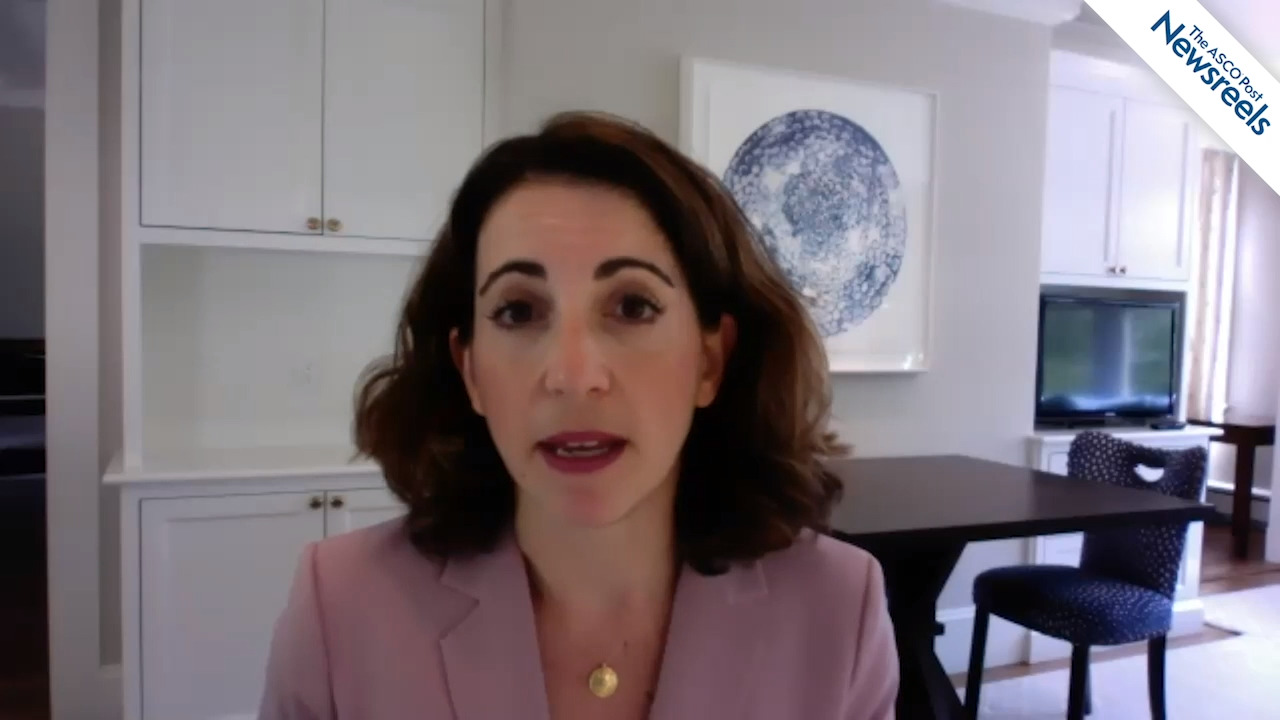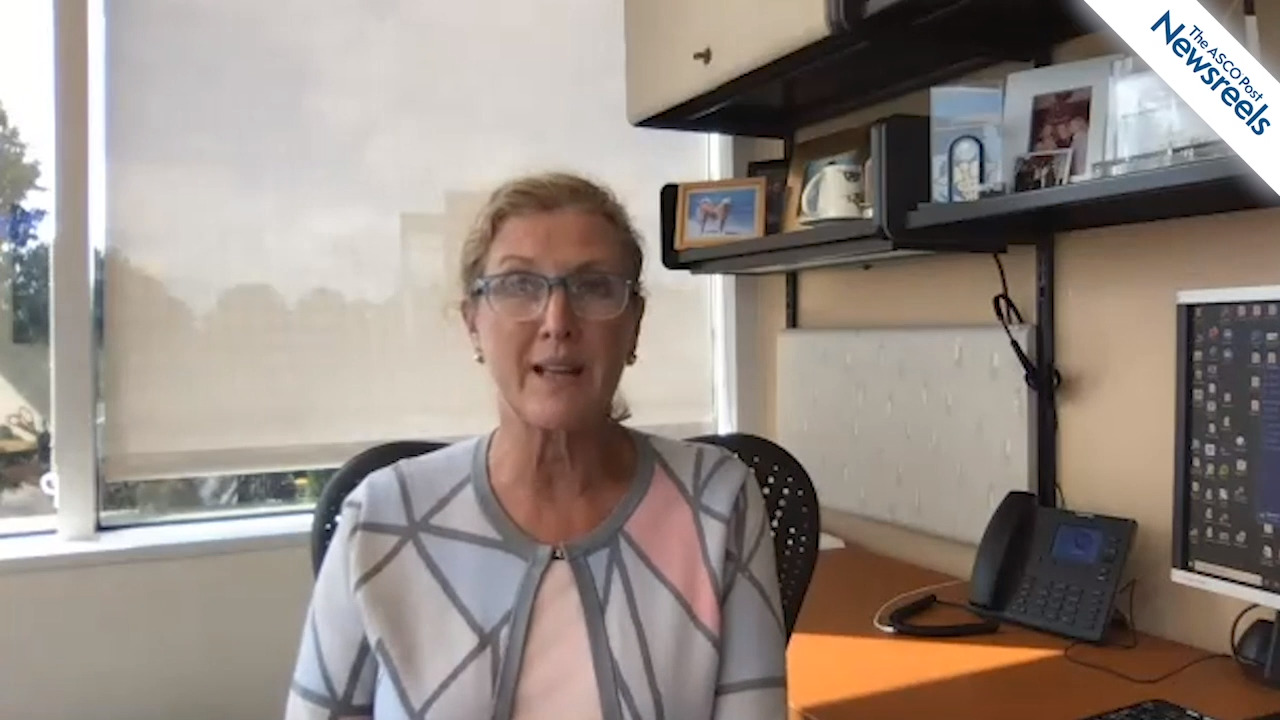Mansoor Raza Mirza, MD, on Endometrial Cancer: Palbociclib Plus Letrozole in ER-Positive Disease
ESMO Virtual Congress 2020
Mansoor Raza Mirza, MD, of Copenhagen University Hospital, discusses phase II study results that showed the combination of palbociclib and letrozole, compared with placebo plus letrozole, improved progression-free survival in patients with estrogen receptor–positive advanced or recurrent endometrial cancer (Abstract LBA28).
The ASCO Post Staff
Nicholas D. James, PhD, MBBS, of The Institute of Cancer Research, London, discusses long-term STAMPEDE trial results that showed patients with metastatic, hormone-naive prostate cancer benefited from abiraterone acetate plus prednisolone in terms of overall and failure-free survival, as well as skeletal-related events (Abstract 611O).
The ASCO Post Staff
Thierry Andre, MD, of Hôpital Saint-Antoine, discusses phase III KEYNOTE-177 findings on the reduced risk of disease progression or death in patients receiving pembrolizumab monotherapy as a first-line treatment of microsatellite instability–high and/or mismatch repair–deficient metastatic colorectal cancer (Abstract 396O).
The ASCO Post Staff
Erica L. Mayer, MD, MPH, of Dana-Farber Cancer Institute, discusses an initial analysis of phase III findings from the PALLAS trial, which suggested the benefits observed in the metastatic setting with palbociclib plus endocrine therapy did not translate into the earlier adjuvant setting for patients with hormone receptor–positive, HER2-negative breast cancer. Long-term follow-up is ongoing (Abstract LBA12).
The ASCO Post Staff
Toni K. Choueiri, MD, of Dana-Farber Cancer Institute, discusses the first results from the phase III CheckMate 9ER trial, which suggested the combination of nivolumab and cabozantinib is safe. It showed activity in progression-free and overall survival, as well as in overall response rates and may have a place in treating patients with metastatic renal cell carcinoma (Abstract 696O_PR).
The ASCO Post Staff
Lisa A. Carey, MD, of the University of North Carolina, discusses phase III results from two IMpassion trials, 130 and 131, which explored, respectively, atezolizumab plus nab-paclitaxel vs placebo plus nab-paclitaxel in previously untreated locally advanced or metastatic triple-negative breast cancer and first-line paclitaxel with or without atezolizumab for unresectable disease (Abstracts LBA15 and LBA16).





